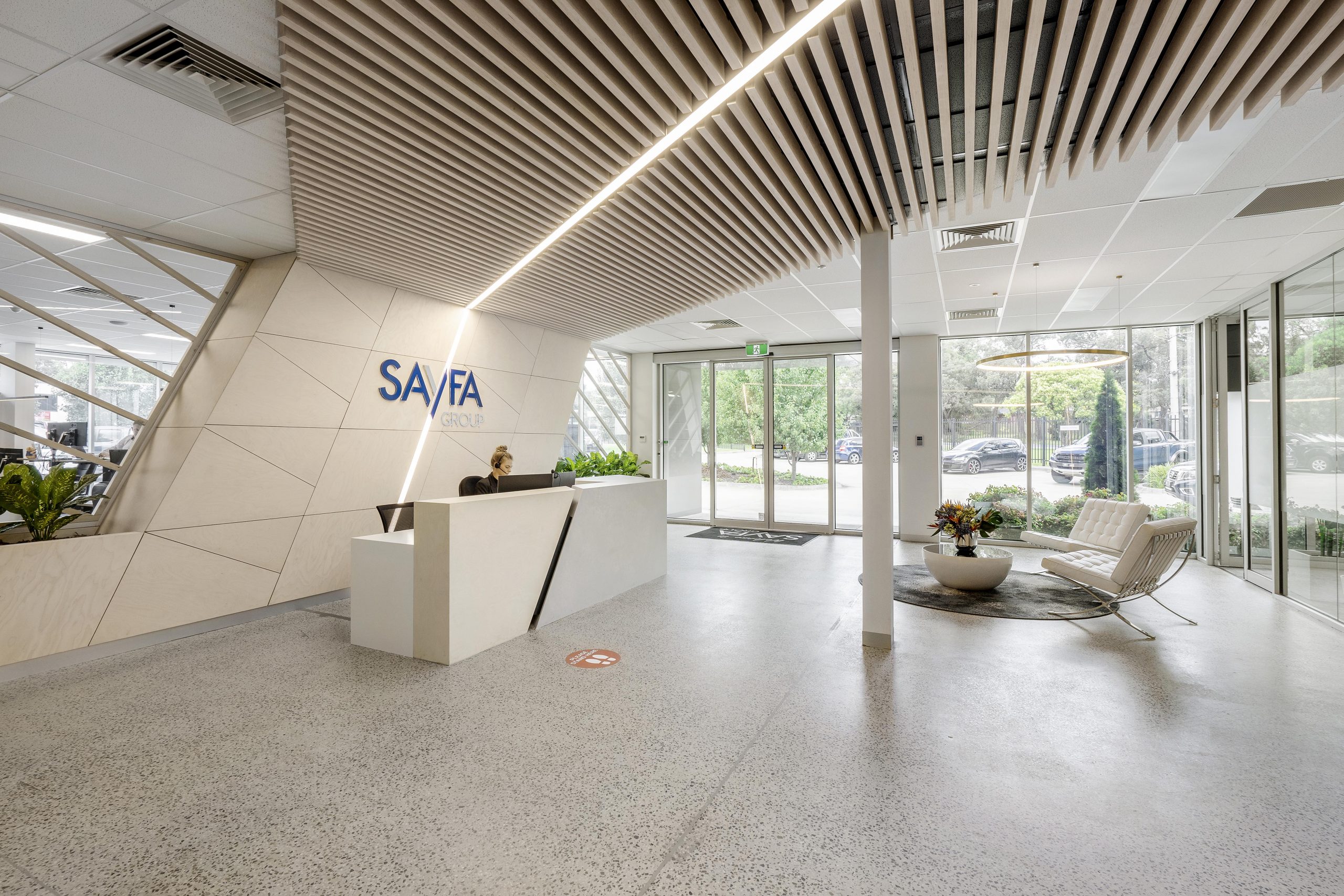21—03—2022
Plywood, Timber and the Circular Economy
As businesses across the globe look for new and innovative ways to reduce their environmental footprint, the concept of a circular economy is gaining plenty of traction.
In contrast to the traditional linear manufacturing process of ‘make, use and dispose’, a circular economy aims to avoid or eliminate waste from the manufacturing process by reusing and recycling as much of the materials as possible.
Because wood is a natural and renewable resource, the timber industry is perfectly positioned to embrace the circular economy – and in fact, many manufacturers are already using many of the sustainable practices that are the foundation.
So to provide some insight into how the circular economy is a viable and more sustainable alternative to traditional linear business models, and explain how timber and plywood manufacture fits into this, we’ve put together a brief overview.
The circular economy explained
While the circular economy is not a new idea, the growing number of industries looking to embrace it has placed it firmly in the spotlight. In a nutshell, a circular economy looks to maximise value at every stage of the design and manufacture process, so that little, if anything, is disposed of as waste. This can be achieved in a range of ways, from using recycled and waste products in manufacturing, to finding a second life for used products away from landfill. Eco-design also matters, as does the source of materials too, as every part of the process, from concept to finished product is part of the circular economy story.
Why are circular economies important?
It’s clear that we need to get better at protecting the environment and the precious resources we rely upon. By adopting a circular economy approach and strategy, forward-thinking industries are meeting this challenge by improving the design and manufacturing process at every step. This has the flow on effect of reducing negative impacts on the environment, as well as promoting economic growth through more efficient production and use of natural resources. Not only is this important from an ethical viewpoint, but with more and more consumers actively seeking to purchase greener products, sustainable business practices and good corporate citizenship are fast becoming essential to every organisation and industry.
Timber and the circular economy
As a natural and renewable resource, responsibly sourced and manufactured timber is a prime candidate for a circular economy model. The Forest Stewardship Council (FSC®️) is a global organisation that sets the standard in responsible forest management. The FSC®️ certification system is a highly respected and credible system that provides manufacturers and consumers with a guarantee that certified timber has been sourced from a responsibly managed plantation. FSC®️ certified timber is a key factor in the circular economy, as it means the timber has been sourced from forests that are healthy, responsibly managed and benefit local communities.
The circular economy in practice
At Maxiply, we are always looking to improve and evolve, and are committed to sustainability and promoting the circular economy in every facet of our business and in the community. Our Baltic Birch and Hoop Pine timbers for example, are both FSC®️ Certified and our manufacturing process is designed and managed to reduce and reuse waste. Some of our off-cuts and sawdust are either diverted for use on future projects, on sold to create solid timber products or donated to a good cause. We’re proud to help those in need, whether that be assisting in clean-up efforts after a natural disaster or donating materials for animal shelters so that volunteers can provide a comfortable space for the creatures in their care. Our manufacturing process is backed by sustainable practices too, including the use of natural waxes (rather than toxic chemicals) for staining and finishing our plywood panels.
The economy of the future
With the clear benefits a circular economy brings to the environment, businesses and consumers, it’s no wonder it is creating a buzz. As more and more industries follow the lead of timber and plywood manufacturing and begin to embrace the circular economy, the future will only look brighter.
If you have a question about our plywood products and sustainability practices, our team would love to hear from you – get in touch on 1300 761 741 for friendly advice today!

21—03—2022
As businesses across the globe look for new and innovative ways to reduce their environmental footprint, the concept of a circular economy is gaining plenty of traction.
In contrast to the traditional linear manufacturing process of ‘make, use and dispose’, a circular economy aims to avoid or eliminate waste from the manufacturing process by reusing and recycling as much of the materials as possible.
Because wood is a natural and renewable resource, the timber industry is perfectly positioned to embrace the circular economy – and in fact, many manufacturers are already using many of the sustainable practices that are the foundation.
So to provide some insight into how the circular economy is a viable and more sustainable alternative to traditional linear business models, and explain how timber and plywood manufacture fits into this, we’ve put together a brief overview.
The circular economy explained
While the circular economy is not a new idea, the growing number of industries looking to embrace it has placed it firmly in the spotlight. In a nutshell, a circular economy looks to maximise value at every stage of the design and manufacture process, so that little, if anything, is disposed of as waste. This can be achieved in a range of ways, from using recycled and waste products in manufacturing, to finding a second life for used products away from landfill. Eco-design also matters, as does the source of materials too, as every part of the process, from concept to finished product is part of the circular economy story.
Why are circular economies important?
It’s clear that we need to get better at protecting the environment and the precious resources we rely upon. By adopting a circular economy approach and strategy, forward-thinking industries are meeting this challenge by improving the design and manufacturing process at every step. This has the flow on effect of reducing negative impacts on the environment, as well as promoting economic growth through more efficient production and use of natural resources. Not only is this important from an ethical viewpoint, but with more and more consumers actively seeking to purchase greener products, sustainable business practices and good corporate citizenship are fast becoming essential to every organisation and industry.
Timber and the circular economy
As a natural and renewable resource, responsibly sourced and manufactured timber is a prime candidate for a circular economy model. The Forest Stewardship Council (FSC®️) is a global organisation that sets the standard in responsible forest management. The FSC®️ certification system is a highly respected and credible system that provides manufacturers and consumers with a guarantee that certified timber has been sourced from a responsibly managed plantation. FSC®️ certified timber is a key factor in the circular economy, as it means the timber has been sourced from forests that are healthy, responsibly managed and benefit local communities.
The circular economy in practice
At Maxiply, we are always looking to improve and evolve, and are committed to sustainability and promoting the circular economy in every facet of our business and in the community. Our Baltic Birch and Hoop Pine timbers for example, are both FSC®️ Certified and our manufacturing process is designed and managed to reduce and reuse waste. Some of our off-cuts and sawdust are either diverted for use on future projects, on sold to create solid timber products or donated to a good cause. We’re proud to help those in need, whether that be assisting in clean-up efforts after a natural disaster or donating materials for animal shelters so that volunteers can provide a comfortable space for the creatures in their care. Our manufacturing process is backed by sustainable practices too, including the use of natural waxes (rather than toxic chemicals) for staining and finishing our plywood panels.
The economy of the future
With the clear benefits a circular economy brings to the environment, businesses and consumers, it’s no wonder it is creating a buzz. As more and more industries follow the lead of timber and plywood manufacturing and begin to embrace the circular economy, the future will only look brighter.
If you have a question about our plywood products and sustainability practices, our team would love to hear from you – get in touch on 1300 761 741 for friendly advice today!






